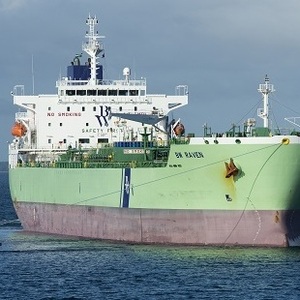US to conduct 'unprecedented review' of biodiesel import duties

Photo: Christer Ivarsson
November 8, 2018
BY The National Biodiesel Board
On Nov. 5, the U.S. Department of Commerce granted a request from the government of Argentina to initiate “changed circumstances”* reviews of U.S. trade duties imposed on Argentine biodiesel companies. The commerce department imposed antidumping and countervailing duty orders earlier this year following investigations in which the government found that biodiesel imports from Argentina were massively subsidized and dumped, injuring U.S. biodiesel producers. The National Biodiesel Board’s Fair Trade Coalition urged the commerce department to reject Argentina’s request and opposes its initiation of the reviews, which could result in resetting the duty rates the department calculated only months ago.
“The commerce department has no basis for initiating this unprecedented review,” said NBB CEO Donnell Rehagen. “Commerce has established procedures for conducting reviews with extensive fact-finding for the very purpose of revisiting antidumping and countervailing duty rates but has never used ‘changed circumstances’ reviews for these purposes. Commerce’s initiation of these reviews just months after finding that Argentina has engaged in unfair trade practices creates a great deal of uncertainty for our industry at a time when the positive results of the original cases are just beginning to be realized.
Rehagen continued, saying, “The U.S. International Trade Commission unanimously determined that U.S. biodiesel producers were injured by biodiesel imports from Argentina, and Commerce confirmed that such harm resulted from massive subsidies provided by Argentina and huge margins of dumping by Argentina’s biodiesel industry. Once Commerce leveled the playing field, domestic biodiesel producers stepped up their efforts, put substantial under-utilized production capacity back to work, and boosted homegrown biodiesel production. In these circumstances, it is a complete mystery why Commerce would open a path to a resumption of unfairly traded imports. This action jeopardizes our industry’s progress and the American jobs our industry supports, and it places added pressure on our nation’s farmers who are already suffering from low commodity prices and uncertain trade conditions.”
Advertisement
John Heisdorffer, president of the American Soybean Association, added, “ASA does not see any change in circumstances that would prompt a change in the previous determination issued by the Department of Commerce and International Trade Administration on this matter. U.S. soybean farmers appreciate the administration’s recognition that subsidized imports of biodiesel from Argentina distort markets and adversely impact U.S. producers and farmers. We are concerned the decision to review has the potential to disturb these well-founded determinations.”
The commerce department’s changed circumstances review process typically takes 270 days, meaning a final determination could come by August 2019.
Kurt Kovarik, NBB vice president of federal affairs, added, “President Trump has consistently stated support for the U.S. biofuels industry and strong enforcement of U.S. trade laws. His administration shouldn’t take action contrary to the president’s commitments. Importantly, soybean growers have seen large global markets closed to them and the EPA has cut the biodiesel industry’s market in the U.S. by 300 million gallons, while handing out RFS exemptions to every refiner that asked. It is unfathomable how Commerce could take such unprecedented action at a time when American farmers are piling surplus soybeans on the ground. Commerce shouldn’t put salt in the wound with actions that further threaten the viability of U.S. producers and farmers in favor of Argentina’s agricultural interests.”
The orders on biodiesel from Argentina imposed by the commerce department earlier this year established final countervailing duty rates ranging from 71.45 to 72.28 percent and antidumping duty rates ranging from 60.44 to 86.41 percent.
Advertisement
The NBB Fair Trade Coalition filed petitions for relief to address a flood of subsidized and dumped imports from Argentina and Indonesia that resulted in market share losses and depressed prices for domestic producers. Biodiesel imports from Argentina and Indonesia surged by 464 percent from 2014 to 2016, taking 18.3 percentage points of market share from U.S. manufacturers. These surging, artificially low-priced imports prevented producers from earning adequate returns on their substantial investments and stifled the ability of U.S. producers to make further investments to serve a growing market.
The U.S. biodiesel market supports more than 60,000 jobs nationwide and more than $11 billion in economic impact. Producers nationwide are poised to expand production and hire new workers with steady growth in the industry.
*Editor’s Note: The “changed circumstances” include Argentina raising its export taxes on biodiesel to close the differential between soybean oil and biodiesel (as this relates to the U.S.’s antisubsidy case and subsequent countervailing duties), and the country raising its biodiesel prices (as this relates to the U.S.’s antidumping case and subsequent tariffs).
Related Stories
The U.S. EPA on July 8 hosted virtual public hearing to gather input on the agency’s recently released proposed rule to set 2026 and 2027 RFS RVOs. Members of the biofuel industry were among those to offer testimony during the event.
The USDA’s Risk Management Agency is implementing multiple changes to the Camelina pilot insurance program for the 2026 and succeeding crop years. The changes will expand coverage options and provide greater flexibility for producers.
President Trump on July 4 signed the “One Big Beautiful Bill Act.” The legislation extends and updates the 45Z credit and revives a tax credit benefiting small biodiesel producers but repeals several other bioenergy-related tax incentives.
CARB on June 27 announced amendments to the state’s LCFS regulations will take effect beginning on July 1. The amended regulations were approved by the agency in November 2024, but implementation was delayed due to regulatory clarity issues.
SAF Magazine and the Commercial Aviation Alternative Fuels Initiative announced the preliminary agenda for the North American SAF Conference and Expo, being held Sept. 22-24 at the Minneapolis Convention Center in Minneapolis, Minnesota.
Upcoming Events










